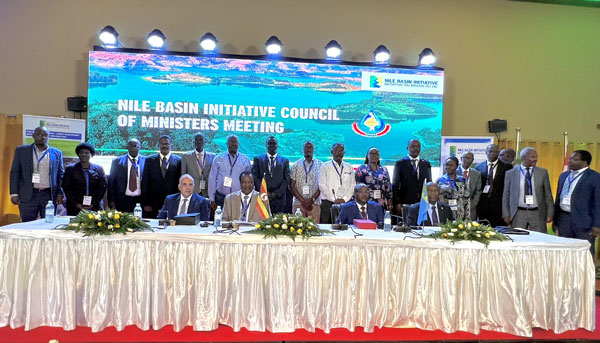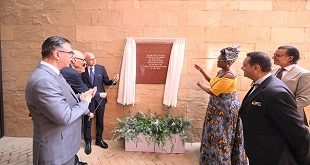
Kampala, Uganda | THE INDEPENDENT | Uganda has taken over the leadership of the Nile Basin Initiative (NBI) for the next year, reaffirming its prominent role in the region. This came during the 31st Nile Council of Ministers Meeting (NILECOM) held in Kampala. Uganda takes over the leadership from Tanzania, which had presided over the organization for the past year.
Uganda hosts the NBI secretariat, which brings together all ten countries within the Nile River basin.
The outgoing NBI Executive Director, Sylvester Matemu, initiated the process that led to Uganda’s nomination by South Sudan and was seconded by Rwanda, DR Congo, and Sudan, with no objections from any country. To secure the leadership position, Uganda settled its subscription arrears, paying them just a day before the meeting.
Notably, Uganda previously chaired the NILECOM in 2016. During the same meeting, Tanzania was elected as the English-language rapporteur, while Burundi was selected as the French-language rapporteur. The NILECOM is a crucial event leading to the upcoming Nile Basin Development Forum (NBDF), now in its 7th edition, which is scheduled to commence today at Speke Resort Munyonyo, Kampala.
The responsibilities of the NBI leader include ensuring adherence to NBI agreement protocols by all members, promoting cooperation and consensus, ensuring the sustainable use of the Nile River, and monitoring the implementation of agreed-upon initiatives.
In his acceptance speech, Sam Cheptoris, Uganda’s Minister for Water and Environment emphasized Uganda’s previous achievements as NILECOM leaders, which included convening the first-ever and, to date, the last Nile Basin Heads of State meeting.
He also stressed Uganda’s commitment to addressing challenges that could disrupt cooperation among NBI members. He pledged to continue engaging with Egypt to foster unity within the NBI.
“I would like to appeal to all of us to use these resources coopery. As we start yet another round to which I accept chairmanship, I count on your commitment and usual support of the NBI agenda, in our countries. I commit to working with you to carefully asses the new challenges, and to forge a way forward for our cooperation. We will continue to engage with Egypt to pursue unity in NBI. This an opportunity, to see that our NBI family comes together to handle issues facing the basin, particularly now that we are faced with issues of climate change, which need us to come together and confront this monster,” the minister explained.
Hani Sewilam, the Minister of Water Resources and Irrigation for the Republic of Egypt recounted Egypt’s pivotal role in establishing the Nile Basin Initiative and emphasized the importance of cooperation and a shared vision among the Nile Basin nations. He expressed hope for a return to inclusive cooperation and genuine consensus, enabling the utilization of untapped resources for the collective benefit of all people in the region. Egypt stands ready to cooperate with other countries under Uganda’s leadership, provided the organization returns to its originally agreed principles.
“For the time being, due to the organization’s present division from the agreed decision-making procedures by consensus, I wish to reaffirm Egypt’s position,” Sewilam said. “Regrettably, despite the importance of the items on the agenda, we are unable to adopt them and their outcomes.”
***
URN
 The Independent Uganda: You get the Truth we Pay the Price
The Independent Uganda: You get the Truth we Pay the Price


